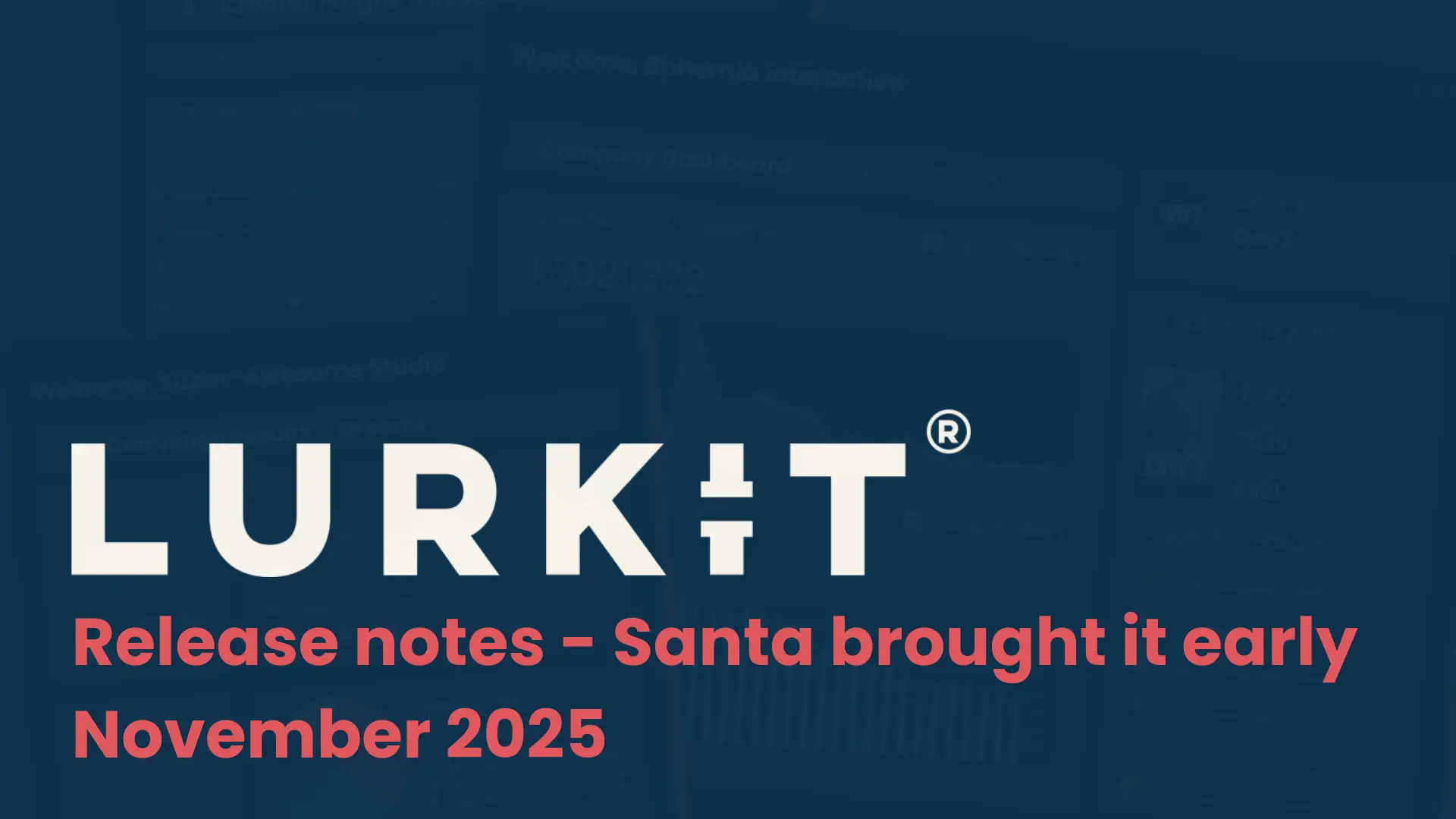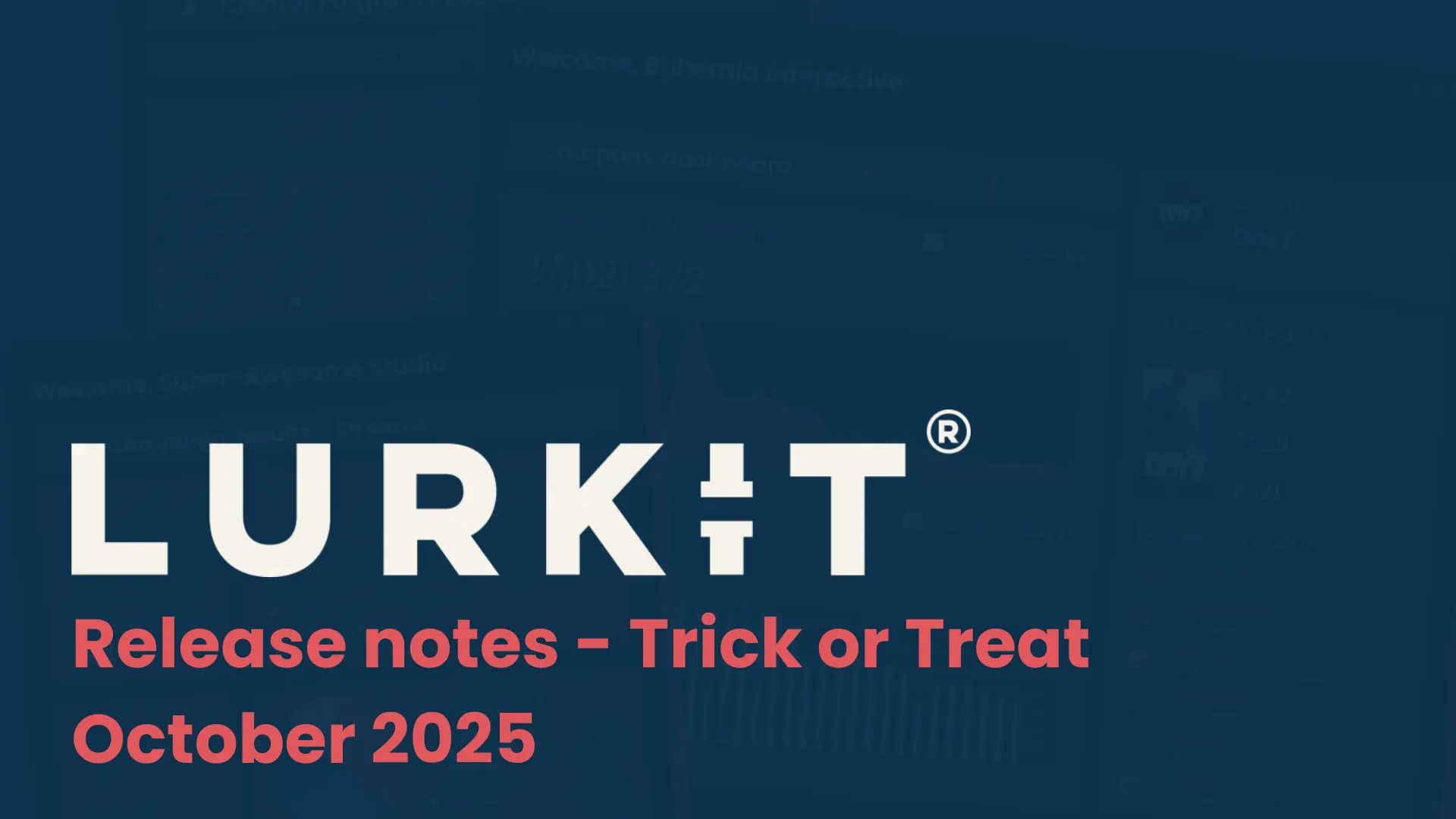Making a video game is hard work and, for new developers, it can be a daunting task to try and market those titles online. Many times, developers feel like they are shouting into a void and some even struggle to receive any recognition despite their work. That is where creating a marketing strategy can help you promote your upcoming game and effectively use services like Lurkit to find a community that will cherish, support, and loves your game.
Welcome to the wonderful world of Game Promotions. In this guide, we will explore why game promotions are much different than a product sale and take a close look at gamers as a consumer market. With a proper understanding of what we are marketing and who we are talking to, we can move into online advertising, social media engagement, and influencer relations.

Game Promotions Vs. Product Promotion
For a long time, games were marketed as a product to be consumed and purchased. Developers, publishers, marketing, and advertising professionals have long debated “games as a service” versus “games as a product” marketing strategies. Rather than trying to break down that lengthy debate, beginning developers should focus on the “games as games” type of thinking.
Games, in short, create a community and lasting relationship with the community. Whether it is a continuing project or a one-off release, developers are creating a piece of art that will be permanently visible on the internet. Gone are the days of temporary releases, so developers should make their marketing count. This leans towards the idea of a “game as a service,” however, developers should realize that whether or not they support the game after release they have birthed a fandom.
Products gain fame, but are often competed with by similar products. The difference between products, services, and games revolves solely around narrative construction. While a game may hold a similar idea, story, or mechanic the new release will trigger a unique adventure and experience within the fan. This experience is the key to game promotions, and with proper leverage can often outperform product and service type thinking.

Understanding Gamers as a Consumer
Gamers seek entertainment, feedback, and participation in the development process. Whether it is being a member of the hype team and advertising the game, or providing valuable feedback, gamers like to be involved. After years of developers sharing epic trailers, promising changes, and pushing out both successful and disappointing projects gamer expectations have evolved. When entering the marketing world, you must understand the expectations of your consumer and why traditional marketing strategies may fall short of expected returns.
To market to the gaming community developers need to be honest with their fans. If a promised feature may not make it into the game, it is best to not discuss it at all. Disappointment, dishonesty, and false hope can kill a game release before it has a chance to succeed. Gamers will often do their research, ask questions, and try to discover everything before the release. It is the job of the developer to temper expectations and tries to maintain a balance between release information and gamer understanding. There is no single demographic for gamers anymore, so the best route is transparency and honesty in your marketing strategy.
Social Media Engagement
Social media is an interactive system, and to market in this environment developers need to interact with the existing population. To drive your social media engagement, you must do more than just shout about your product. Become three-dimensional as an account and develop your company voice as an interactive force. Rather than being a faceless company, become a member of the gamer community as an advocate for your game as your game. This is a very specific distinction as you still should advertise your game online. However, developers must post interactive media and interact with the fans good and bad. An unanswered statement gives credibility to it, so control your narrative and engage with your social media audience.

Online Advertising
Traditional advertising still has a place in modern game promotions. Web ads, sponsorships, and promoted posts can all drive game sales and push players towards a new title. However, do realize the number of advertisements and games that release on a monthly basis. With the online environment covered in advertising, it is hard to breakthrough. For new developers, this becomes an expensive and unrewarded process if the game does not have the budget to support an online advertising campaign.
Despite this, there are a few ways that a small new developer can break through the nonstop noise. Innovative copy, well-targeted advertising, and consumer ambassador efforts can result in more engagement and sales than an expensive advertising campaign. Look for what makes your game special and push those angles to become something more than just another game release. Show your audience, through your advertising, that you are more than just another game in the never-ending release schedule of the online ecosystem.
Quality over Quantity
When it comes to promoting a game, quality advertising must take priority over quantity. Create ads that you would want to see, ads that teach or engage, and push those over any surplus copy. The world is filled with advertising and the consumer market has grown skilled at ignoring and bypassing any promotional effort. So developers need to look towards doing something innovative, and this can take time. Feel good about rotating quality ads, and do not fall into the trap of excessive advertising efforts online. If you respect your consumer, show them something they want to see, then you will see the return in sales and engagement that far exceed quantity-based promotion efforts.

Influencer Relations
Selecting the right influencers can be key in promoting a new game. Lurkit offers a database full of analytics that can help with this process, but game developers should choose influencers that represent their title best. After an influencer is selected, it is important to support them and keep the relationship honest and professional. This can build a trusting relationship between the developer and the influencer which may help when advertising future titles. Find the right influencer, and be grateful for all they do. Even if they do not like your game, their honest opinion is important to your advertising strategies and future efforts.
For more help in marketing, Lurkit offers a wide variety of tools for developers to access. Indie devs who have just released their first game are eligible for a discount for our services and can reach out to hello@lurkit.com for more information.








